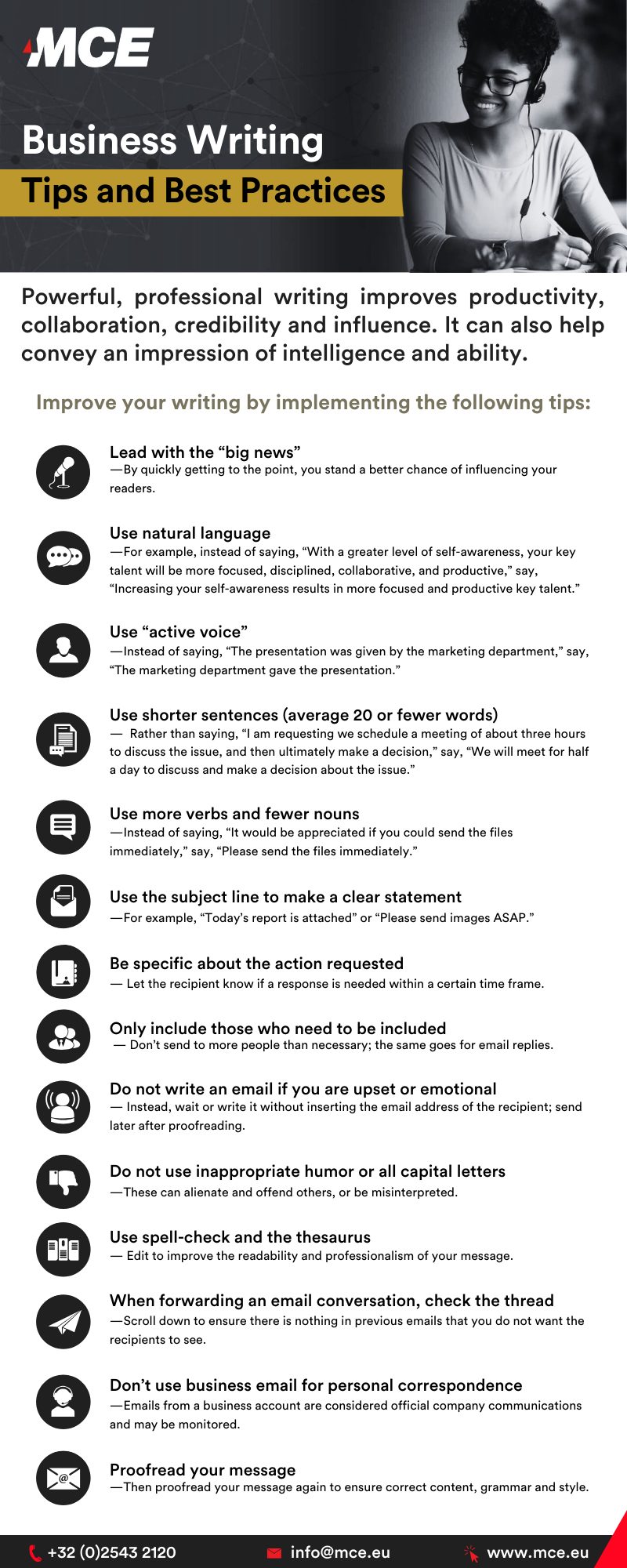Business Writing – Tips & Best Practices
Powerful, professional writing improves productivity, collaboration, credibility and influence. It can also help convey an impression of intelligence and ability.
Improve your writing by implementing the following tips:
 Lead with the “big news”
Lead with the “big news”
—By quickly getting to the point, you stand a better chance of influencing your readers.
Use natural language
—For example, instead of saying, “With a greater level of self-awareness, your key talent will be more focused, disciplined, collaborative, and productive,” say, “Increasing your self-awareness results in more focused and productive key talent.”
Use “active voice”
—Instead of saying, “The presentation was given by the marketing department,” say, “The marketing department gave the presentation.”
Use shorter sentences (average 20 or fewer words)
— Rather than saying, “I am requesting we schedule a meeting of about three hours to discuss the issue, and then ultimately make a decision,” say, “We will meet for half a day to discuss and make a decision about the issue.”
Use more verbs and fewer nouns
—Instead of saying, “It would be appreciated if you could send the files immediately,” say, “Please send the files immediately.”
Use the subject line to make a clear statement
—For example, “Today’s report is attached” or “Please send images ASAP.”
Be specific about the action requested
— Let the recipient know if a response is needed within a certain time frame.
Only include those who need to be included
— Don’t send to more people than necessary; the same goes for email replies.
Do not write an email if you are upset or emotional
— Instead, wait or write it without inserting the email address of the recipient; send later after proofreading.
Do not use inappropriate humour or all capital letters
—These can alienate and offend others, or be misinterpreted.
Use spell-check and the thesaurus
— Edit to improve the readability and professionalism of your message.
When forwarding an email conversation, check the thread
—Scroll down to ensure there is nothing in previous emails that you do not want the recipients to see.
Don’t use business email for personal correspondence
—Emails from a business account are considered official company communications and may be monitored.
Proofread your message
—Then proofread your message again to ensure correct content, grammar and style.














